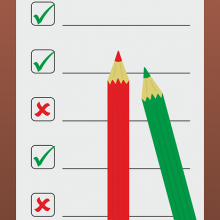A number of changes were introduced to the legislation governing the residential landlord and tenant relationship, these changes increased the obligations and the potential liability of residential landlords. In addition to changing the law, the 2019 Act also introduced a new complaints, investigations and sanctions procedure. This is a new function of the Residential Tenancies Board (RTB) which means the RTB are now in a position to impose penalties on landlords who are found to have committed improper conduct. What constitutes improper conduct? Failure to comply with the Rent Pressure Zone (RPZ) requirements. This occurs by increasing rent by
Read More
Archives for Property Management
10 Things Landlords Should Know About Rent Pressure Zones
1. Rent Pressure Zones (RPZs) limit the amount of rent in exsiting tenancies as well as new tenancies. 2. RPZs use deisignated Local Electoral areas; to check if your property is in a RPZ input your property address into the RTB Calculator. 3. There is a prescript formula to calculate the rent. R x (1 +0.04 x t/m) R= The last rent set under a tenancy. t = The number of months between the date the current rent came into effect and the date the new rent will come into to effect. m = 12 or 24 4. RPZs commenced
Read More
Do You Know What A Part 4 Tenancy Is?
Under the Residential Tenancies Act once a tenant is in your property for more than 6 months, they acquire a Part 4 tenancy. A Part 4 tenancy is either a 4-year cycle or a 6-year cycle dependant on when the tenancy commenced. If the tenancy started on or before 24 December 2016, this is a 4-year cycle. If the tenancy started after 24 December 2016, this is a 6-year cycle. Once the tenant is in your property 6 months, a Part 4 tenancy entitles the tenant to remain in your property for a further 3.5 years in
Read More
Landlords – Know The Difference Between Subletting; An Assignment and A Licensee?
Licensing arrangements in private rented accommodation are often confused with sub-lettings and assignments. There is a difference between the above mentioned and it is important that landlords know the distinction. The main difference is that when a tenant assigns or sublets the rental accommodation, they no longer live in it. However, if a tenant takes in a licensee, the licensee shares the accommodation with the tenant. As landlord you are responsible for your property and you have obligations to your tenants, it is vital that you are aware who is residing in your property. Subletting – is where a tenant
Read More
Fire Safety In Rental Accommodation
Frighteningly, in as little as 3 minutes a person can die of smoke inhalation. Landlords please be aware of your responsibilities in relation to fire safety and to ensure that your properties are fully compliant with the fire safety standards and regulations applicable to rental properties. Information on the requirements for fire safety can be found in the Housing (Standards for Rented Houses) Regulations Specifically landlords must ensure: There is a suitable self-contained fire detection and alarm system in each house. There is a suitably located fire blanket. That each self-contained house in a multi-unit building shall contain a suitable
Read More
Has Your Rental Property Been Inspected?
As a landlord you have a legal obligation to ensure that your rental home meets certain minimum physical standards. Local authorities are responsible for carrying out inspections on rental accommodation and enforcing the minimum standards. These standards are set out in the Housing (Standards for Rented Houses) Regulations In general, the standards apply to dwellings rented from private landlords, local authorities and approved housing bodies. However, they do not apply to holiday homes or to communal housing being let by the Health Service Executive or an approved body. The regulations specify requirements in relation to: Structural Condition Sanitary Facilities Heating Facilities Food Preparation
Read More
Student Specific Accommodation
It is important that landlords are aware of recent changes to legislation in relation to Student-Specific Accommodation (SSA). This includes purpose built student accommodation and accommodation that is let for the sole purpose of providing accommodation to students during the academic year. The legislation clarifies that Student-Specific Accommodation provided by the private sector is within the jurisdiction of the RTB, regardless of whether there is a lease or license agreement in place. What Do These Changes Mean for Landlords? If you provide accommodation to students under a license agreement after 15th August 2019 you must register with the RTB. Student
Read More







